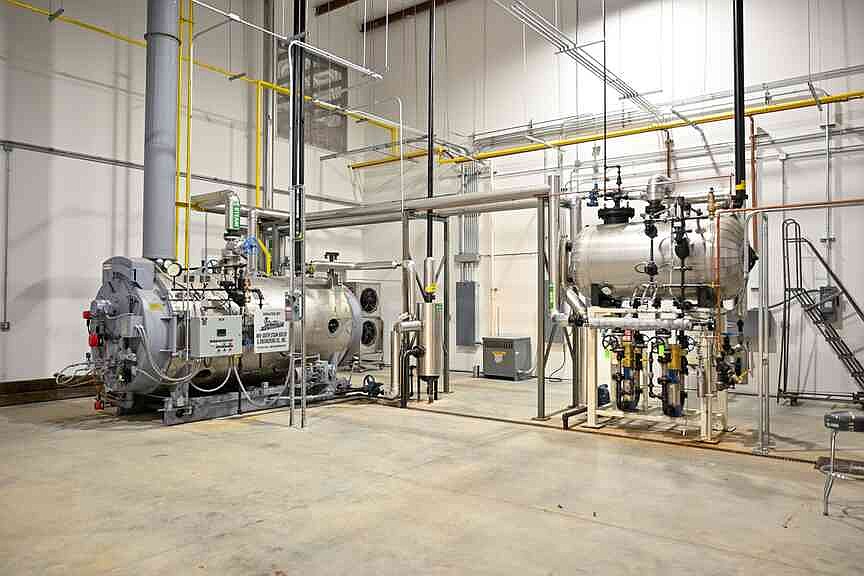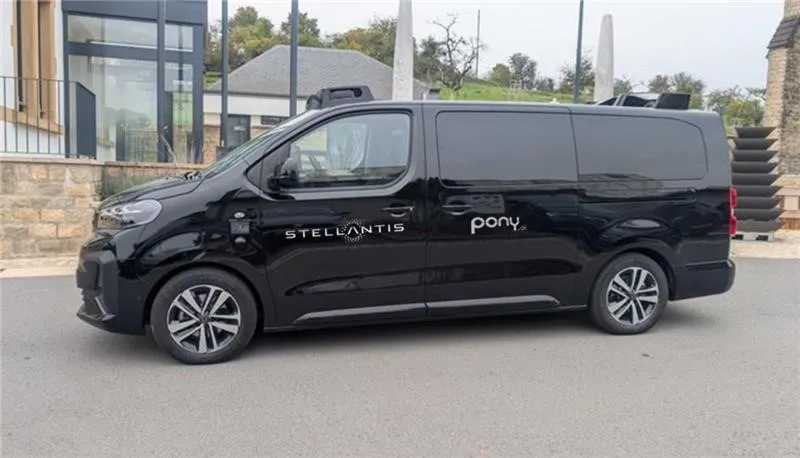Copyright Arkansas Online

SPRINGDALE -- A celebration of the past and the future at Northwest Technical Institute Thursday greeted guests with a video explaining the school's impact. "The people that are hiring and stuff like that, their problem is, 'We don't want to put anybody in who doesn't know what they're doing,'" said Ethan Cantrell, an industrial maintenance technology student, in a video discussing the institute's newest training facility. "So you can come here, and they'll give you a chance. They'll let you put your hands on it." Local and state-level leaders joined officials from the Springdale-based post-secondary workforce technical training school in honoring its 50th anniversary and the opening of its ammonia refrigeration and boiler training facility. Northwest Technical Institute opened in 1975 as Northwest Vo-Tech with approximately 220 students. The training school would adopt its current name in 1991. "From my earliest days at the chamber, which was back in 1998, I learned very quickly that not only our chamber, but this community had a very special place in our collective heart for Northwest Technical Institute," said Bill Rogers, president of the Springdale Chamber of Commerce. He pointed to the Springdale Industrial Commission's initial 38.5-acre donation to the state of Arkansas to build the school as a reflection of the city's culture of blue-collar work ethic. Mike Rogers -- the state's chief workforce officer, a former senior director of maintenance and refrigeration for Tyson Foods and a former industrial educator -- touched on how the training school impacted his life. "My dad came to this school to change his vocation, couldn't make a living on the farm, and ended up coming to NWTI," he said. "And it changed my trajectory, because I grew up with blue blood and blue collar, knowing the work, the requirements, the ethics, the calluses and not to be looked down on because you know how to fix something." Looking back on Northwest Technical Institute's 50-year history and how it shaped him, he expressed optimism for how recent developments can set the training school up to impact more people over the next 50 years. The celebration included a ribbon-cutting for the training school's 19,800-square-foot, $3.5 million ammonia refrigeration training facility. The building, which experienced construction delays, is the first of its kind in Arkansas and one of only four nationwide. "As a proud Arkansas native and stock supporter of industrial education, it's tough for me to express how proud I am of the fact that NWTI will house one of the top ammonia refrigeration training sites in the Western Hemisphere," said Aaron Wright, chair of the training school's Board of Directors. The new facility supports short-term, two- to four-day certification courses for ammonia refrigeration and boiler training. Northwest Technical Institute also offers a long-term, 11- to 18-month diploma program for ammonia refrigeration training. These courses provide industrial skills training useful for employees at nearby companies such as Tyson Foods, where the chemical compound ammonia is used as a refrigerant in meat production. Wright described the four-step process to attendees as a closed-loop system, where the chemical does not come out of the system after being put in. "First, the compressor, which squeezes the gas, (makes) it hot at high pressure," he said. "Second, the condenser then cools that gas so it turns into a liquid and releases heat to air or water. Third, the expansion valve lets the liquid ammonia expand and drop in pressure and temperature. And finally, the fourth stage uses an evaporator that uses the cold ammonia to absorb heat from the area being cooled, and then it turns back into a gas, all while staying within that loop." Northwest Technical Institute has expanded its ammonia refrigeration course offerings this year with the completion of the new facility and growing demand. The average class size for the courses increased from 1.5 in April to 8.7 in September, according to information from the school. David Patty, who took over as Northwest Technical Institute's president in May, previously worked at Tyson Foods. He described his responsibility at the company as upskilling its maintenance and refrigeration technicians to reduce downtime, lower costs and increase proficiency. "But the result was a little bit more profound than that for me, because I saw firsthand what skills training could do for individuals," he said. "It would change lives." Patty said the new facility will be able to have this type of impact, not just through in-depth ammonia refrigeration courses, but also through more electrical and boiler training courses. "Here we are giving our students hands-on experience with industrial technology, and we're meeting a critical need for skilled labor in high-demand fields," he said.



